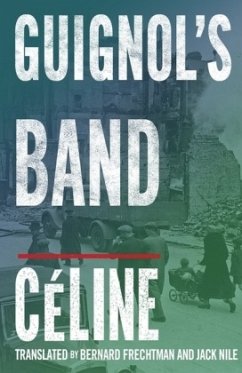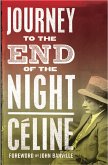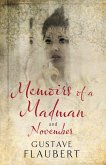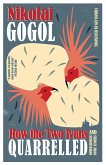Céline's third novel, first published in 1944 but dealing with events taking place during the First World War, Guignol's Band follows the narrator's meanderings through London after he has been demobilized due to a war injury. The result is a frank, uncompromising, yet grotesquely funny portrayal of the English capital's seedy underworld, peopled by prostitutes, pimps and schemers.
Often considered to be Céline's funniest work, Guignol's Band showcases its author's idiosyncratic style at its finest, frantically blending slang, invective, onomatopoeia with literary language, and bridging the gap between gritty realism and absurd mysticism.
Hinweis: Dieser Artikel kann nur an eine deutsche Lieferadresse ausgeliefert werden.
Often considered to be Céline's funniest work, Guignol's Band showcases its author's idiosyncratic style at its finest, frantically blending slang, invective, onomatopoeia with literary language, and bridging the gap between gritty realism and absurd mysticism.
Hinweis: Dieser Artikel kann nur an eine deutsche Lieferadresse ausgeliefert werden.








